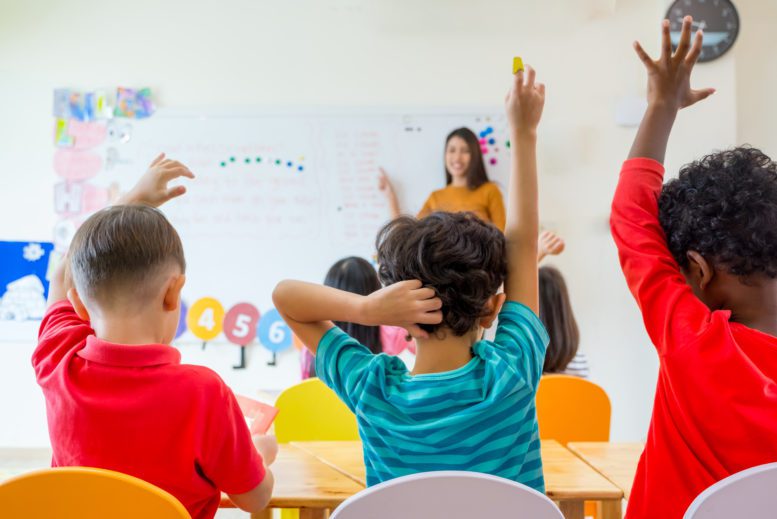Miami-Dade County Public Schools students head back to the classroom Monday, Aug. 20. As teachers put the finishing touches in their classrooms and parents attend orientations, FIU psychologist Erika Coles, offers insight both teachers and parents can use for a successful start to the school year.
These five tips can help teachers effectively manage common difficulties in the classroom and help improve the learning environment for all students.
- Establish classroom rules. The rules should be simple and presented in a positive way. Each rule should explain what the student should do instead of what they shouldn’t do — “raise your hand before speaking” instead of “don’t speak out of turn.” Rules should be reviewed frequently throughout the school year.
- Establish a classroom routine. Having a daily routine for students will facilitate teaching and learning, and will reduce behavior difficulties in the classroom. Consistently following through with a classroom routine helps children know what is expected of them each day.
- Create a reward system. Creating a daily reward system will help establish a positive classroom environment and keep students motivated. The menu of rewards should include things that are easy to implement — passing out papers, being the line leader or picking a small prize from a treasure box. How students can earn the rewards should be clearly defined.
- Praise kids often, especially when teaching children new skills or behaviors. Praise a specific behavior and avoid vague statements — “I love the way you raised your hand” instead of “good job.” Children with more challenging behaviors need to be praised more frequently when they are caught being good.
- Communicate with parents early and often. For children who show more severe behavioral problems, an individualized behavior plan works best. Implementing a daily report card helps teachers and parents work collaboratively to identify, monitor and change the child’s behavioral challenges at school and at home.
Fifty percent of mental health disorders begin before age 14, affecting the learning and school experience for all children. The FIU Center for Children and Families offers services for kids and teens struggling with ADHD and behavioral problems, anxiety and fears, academic and social skills, trauma, mood and depression, and more. The center also offers training and education for teachers who often are the frontline mental health providers for these children.
For information, visit ccf.fiu.edu or call 305-348-0477.
 Coles is the clinical director for the Center for Children and Families. Her research focuses on the effectiveness of behavioral interventions in the school setting. She studies how consultation interventions can be used to enhance teacher integrity, knowledge, attitudes and skills to improve student outcomes in the classroom. Coles also specializes in behavior interventions to assist children with ADHD in the classroom, including the implementation of a daily report card transitioning into the school year with a behavioral plan for the classroom to prevent behavior problems from interfering with academic and social functioning.
Coles is the clinical director for the Center for Children and Families. Her research focuses on the effectiveness of behavioral interventions in the school setting. She studies how consultation interventions can be used to enhance teacher integrity, knowledge, attitudes and skills to improve student outcomes in the classroom. Coles also specializes in behavior interventions to assist children with ADHD in the classroom, including the implementation of a daily report card transitioning into the school year with a behavioral plan for the classroom to prevent behavior problems from interfering with academic and social functioning.






